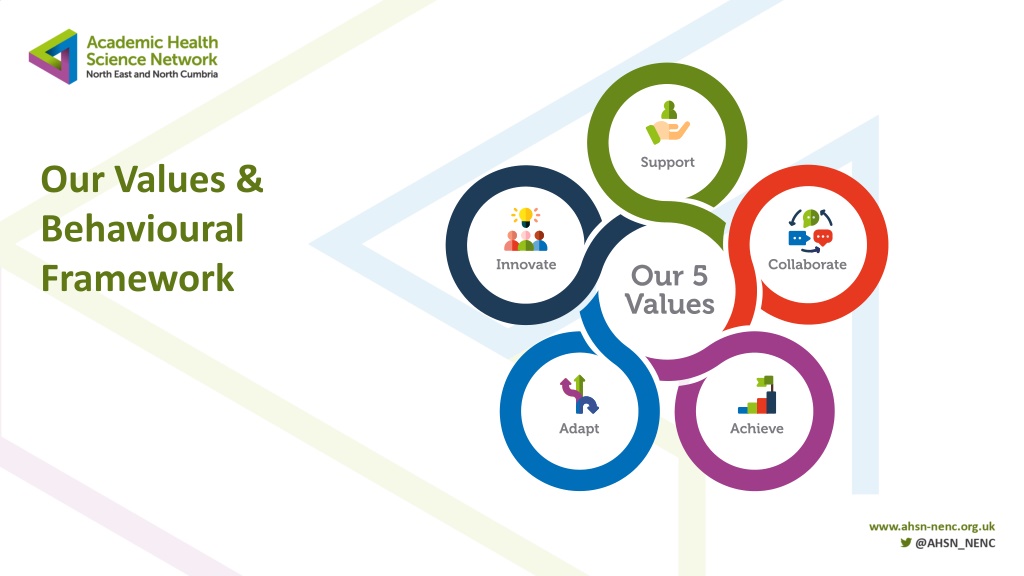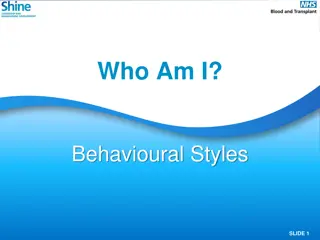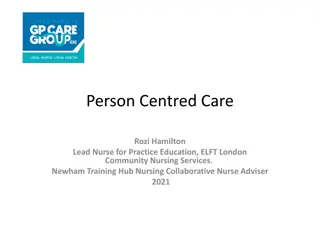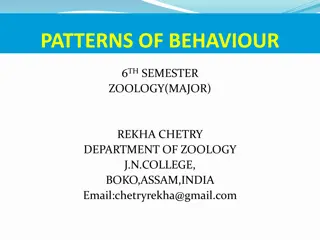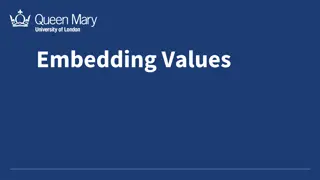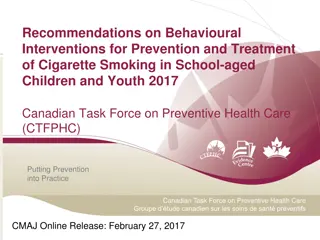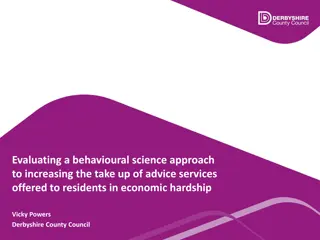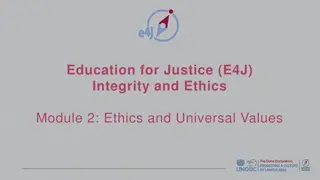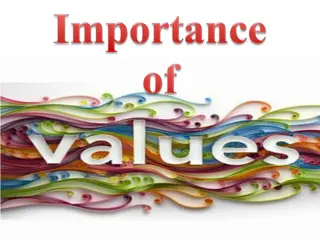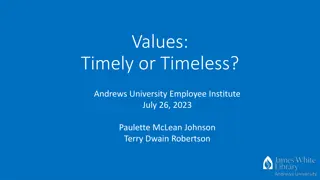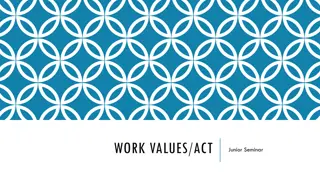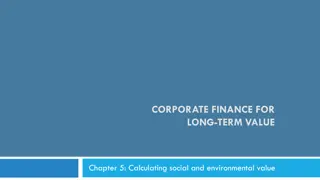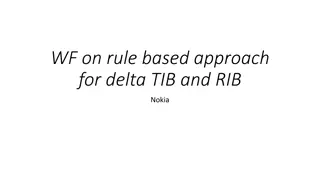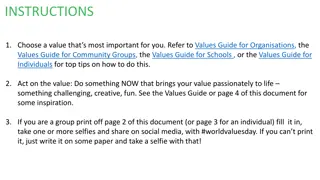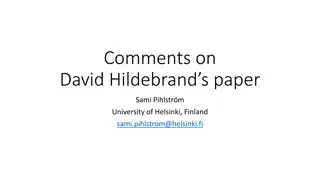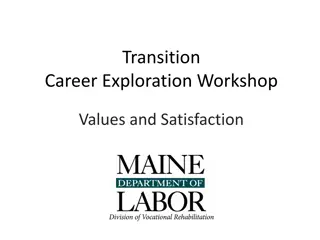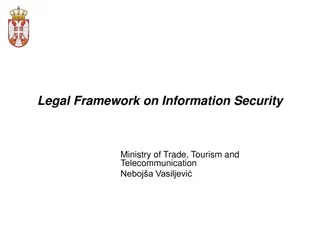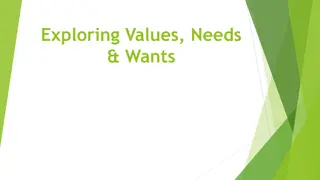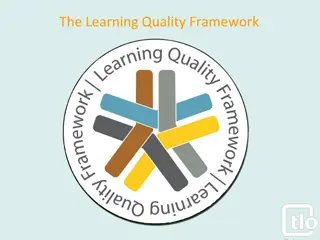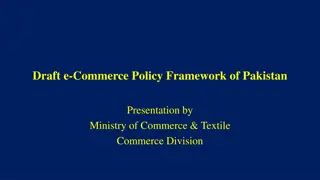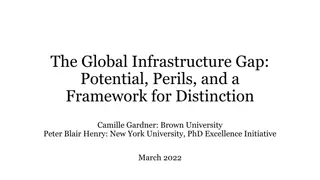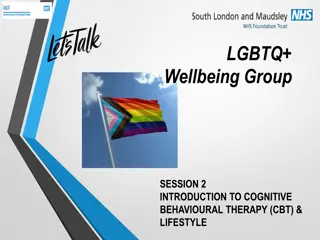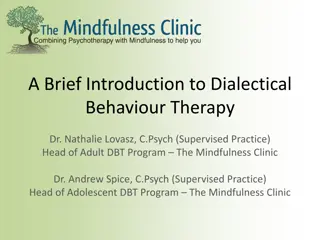Understanding Our Values and Behavioural Framework
Our values define our identity, principles, and actions within our organization. They guide us in working collaboratively, achieving success, adapting to challenges, and fostering innovation. The behavioural framework translates these values into actionable behaviors, emphasizing inclusivity, respect, achievement, adaptation, and innovation. Integrating the framework into decision-making, recruitment, development, and leadership practices empowers individuals and teams to uphold our values consistently and drive positive impact.
Download Presentation

Please find below an Image/Link to download the presentation.
The content on the website is provided AS IS for your information and personal use only. It may not be sold, licensed, or shared on other websites without obtaining consent from the author. Download presentation by click this link. If you encounter any issues during the download, it is possible that the publisher has removed the file from their server.
E N D
Presentation Transcript
Our Values & Behavioural Framework
What are values? Our values define who we are, what we stand for and how we behave They are part of our culture and the very DNA of our organisation We live our values in our work with partners, with each other and in the positive impact we strive for in society Our values guide and hold us accountable to be our best and deliver our best, transforming lives through innovation How we created our values Our values and behaviours were designed and created in collaboration with our whole team. At a company-wide Away Day, in workshops and through surveys we explored our culture, what makes us unique, and what we need from ourselves and each other to be our best and achieve success. Our people voted, and our values and behaviours were brought to life and launched by our Exec Team in June 2022.
Support Collaborate Achieve Adapt Innovate We are respectful of others, value their opinions, are approachable and inclusive in all that we do. We promote connections, and open and honest professional working environments where knowledge and experience is shared. We are committed to delivering high quality work, pushing the boundaries, setting high ambitions, sharing our successes and celebrating our achievements with pride. We work with positivity, agility and flexibility, adapting our approach and solutions in response to the challenges at hand. We encourage creative thinking by adopting an open- minded approach, providing a safe space to fail and learn without judgement.
What is a behavioural framework? Our behaviours are our values in action, they are what people see and experience others doing We choose to put our values at the heart of everything we do, and how we go about doing it A behavioural framework sets out clear examples that show when we are, or are not, living our values Our behavioural framework is grounded in the reality of our organisation and shows how we can achieve success in line with our values Tips for using a behavioural framework People and teams in the most successful organisations know their values and behaviours and use them to guide their decisions and actions. Integrating the behavioural framework into your decision making, recruitment processes, onboarding, people development and ongoing management and leadership practices are just some of the ways you can bring the framework to life. It's all about having the courage and conviction to recognise and reward the behaviours we love to see and to challenge the ones we don't.
Support We are respectful of others, value their opinions, are approachable and inclusive in all that we do. Expect to see Don t expect to see Ensuring everyone feels included, valued and respected. Treating others with kindness, consideration and empathy. Showing a lack of kindness or consideration for others; being impolite or complaining. Checking in with colleagues to see how they are feeling and how their day is going. Making yourself available to support others, sharing skills, workloads, and feedback. Being unapproachable, avoiding, or not making time for others. Having an open door and being approachable for people to speak and making the time to really listen, even when you re busy. Backing, supporting and inspiring those you work with to help them develop and grow. Being friendly, having fun, and building relationships with others. Excluding others, working in a silo, or making decisions without involving others. Empowering and encouraging one another. Disregarding or being dismissive of other people s ideas; dictating, pulling rank or knowing better. Being disengaged, half-hearted or obstructive; providing unconstructive or negative feedback. Being transparent and explaining your decisions honestly, even when it s difficult. Respecting and valuing all ideas and perspectives; actively listening and discussing things together.
Collaborate We promote connections, and open and honest professional working environments where knowledge and experience are shared. Expect to see Don t expect to see Sharing ideas freely ( no idea is bad ); respecting others' input without judgement. Supporting team building; getting together and actively strengthening our connections. Deliberately withholding information; treating knowledge as power; secrecy or dishonesty. Using networks (internally and externally) to make best use of others' expertise. Encouraging collaboration and knowledge sharing across the entire organisation. Not fully participating in team meetings or events; being unwilling to help or assist others. Building trust through being open and honest, and having each other s backs. Remain inclusive and collaborative with everyone and when fostering new working relationships. Actively seeking and embracing different views and feedback; encouraging healthy debate. Recognising when others need assistance and reaching out to offer expertise, problem solving or a sounding board. Undermining others, using put downs or encouraging unhealthy rivalry. Working together with a one team ethos to join forces. Working to own agenda or interests; being selfish or unsupportive. Responding positively to requests for help; cooperating and engaging fully with others. Not taking the time to listen to or see what others are doing; doing things to rather than with people.
Achieve We are committed to delivering high quality work, pushing the boundaries, setting high ambitions, sharing our successes and celebrating our achievements with pride. Expect to see Don t expect to see Setting a clear and inspiring vision of what success looks like to others. Celebrating our successes as a team and sharing our achievements. Laziness, complacency or doing the bare minimum; lack of care and effort; it will do, not my problem . Failing to see the big picture; being inward looking at the expense of others. Recognising, celebrating and promoting the efforts and achievements of others. Striving for excellence, taking pride in our work, pushing ourselves within healthy boundaries and supporting each other to do our best. Setting clear and meaningful goals; delivering high quality outputs and being focused in our efforts to achieve deadlines. Prioritising areas we can have the most impact, achieve results and make a positive difference. Creating an environment where individuals can achieve success and growth. Compromising our own or others wellbeing to achieve targets; over promising or taking on too much. Acting without a plan, focus, or direction; going off on tangents; failing to deliver. Honouring people s aspirations and supporting them to fulfil their potential. Welcoming mistakes and challenges as opportunities for growth, and the chance to learn and improve. Having a can-do attitude, being driven and working hard to deliver what we say we will. Blaming people for failures, lack of ownership or taking the credit for others success and hard work.
Adapt We work with positivity, agility and flexibility, adapting our approach and solutions in response to the challenges at hand. Expect to see Don t expect to see Building capability to thrive in complex environments. Letting go of things that hinder progress and ensuring things are kept as straightforward as possible. Working in balanced, well-paced and healthy ways. Overcomplicating things and getting bogged down in the process; getting stuck in the mud. Empowering self and others to work responsively and with flexibility, overcoming constraints and barriers. Building resilience and protecting wellbeing of self and others to ensure enduring capability. Providing guidance and prioritisation to remove noise and distractions and promote focus. Taking on too much, spreading ourselves too thinly and becoming overwhelmed. Adapting and responding quickly to changes; being willing to learn, unlearn and relearn Being flexible and adaptable in approach to meet different needs. Inflexibility or unwillingness to compromise; having tunnel vision. Failing to set healthy boundaries, take breaks and recharge; not maintaining a healthy work- life balance. Dwelling on mistakes, allowing doubt to hold us back, getting weighed down by negative thinking. Sharing best practice, tools and skills to equip others to be efficient and effective amongst change. Adopting a growth mindset and seeking different perspectives.
Innovate We encourage creative thinking by adopting an open-minded approach, providing a safe space to fail and learn without judgement. Expect to see Don t expect to see Encouraging and accepting new ideas, recognising the value of ideas from others. Using imagination and critical thinking to generate ideas, explore possibilities and create solutions. Being actively curious, open minded and interested in new ways of doing things. Being closed-minded, judgmental, or dismissive; not listening to others. Creating an environment that supports people to think differently. Accepting the status quo and doing things the way we ve always done them. Giving people the freedom and support to explore their ideas. Openly sharing new knowledge and best practice with others. Reluctance to change; making excuses, being avoidant or not taking positive action when you can. Letting failure or setbacks get in the way; giving up too soon. Willingness to change your mind. Speaking up for what we feel will make a difference. Creativity in bringing the best out of people; bringing ideas and resources together. Stepping outside your comfort zones and giving yourself permission to fail. Fickleness; being unpredictable or inconsistent.
